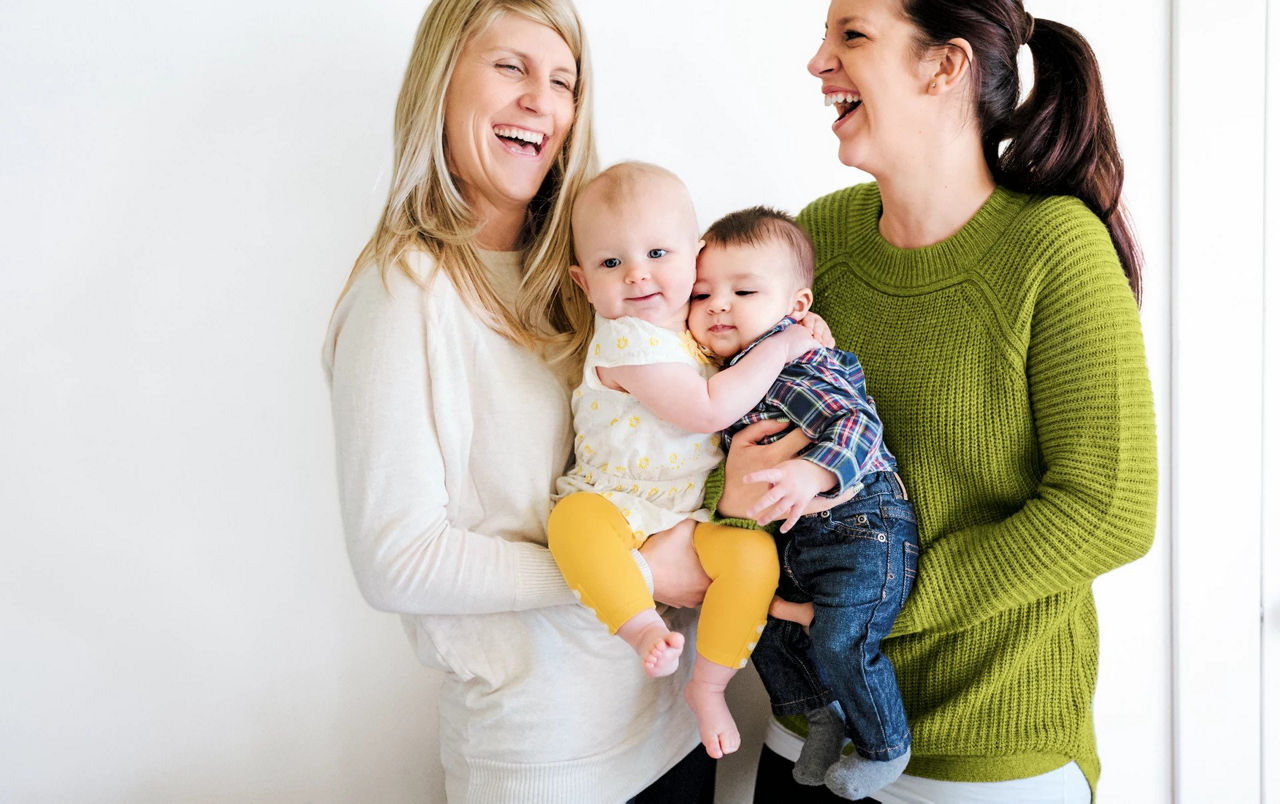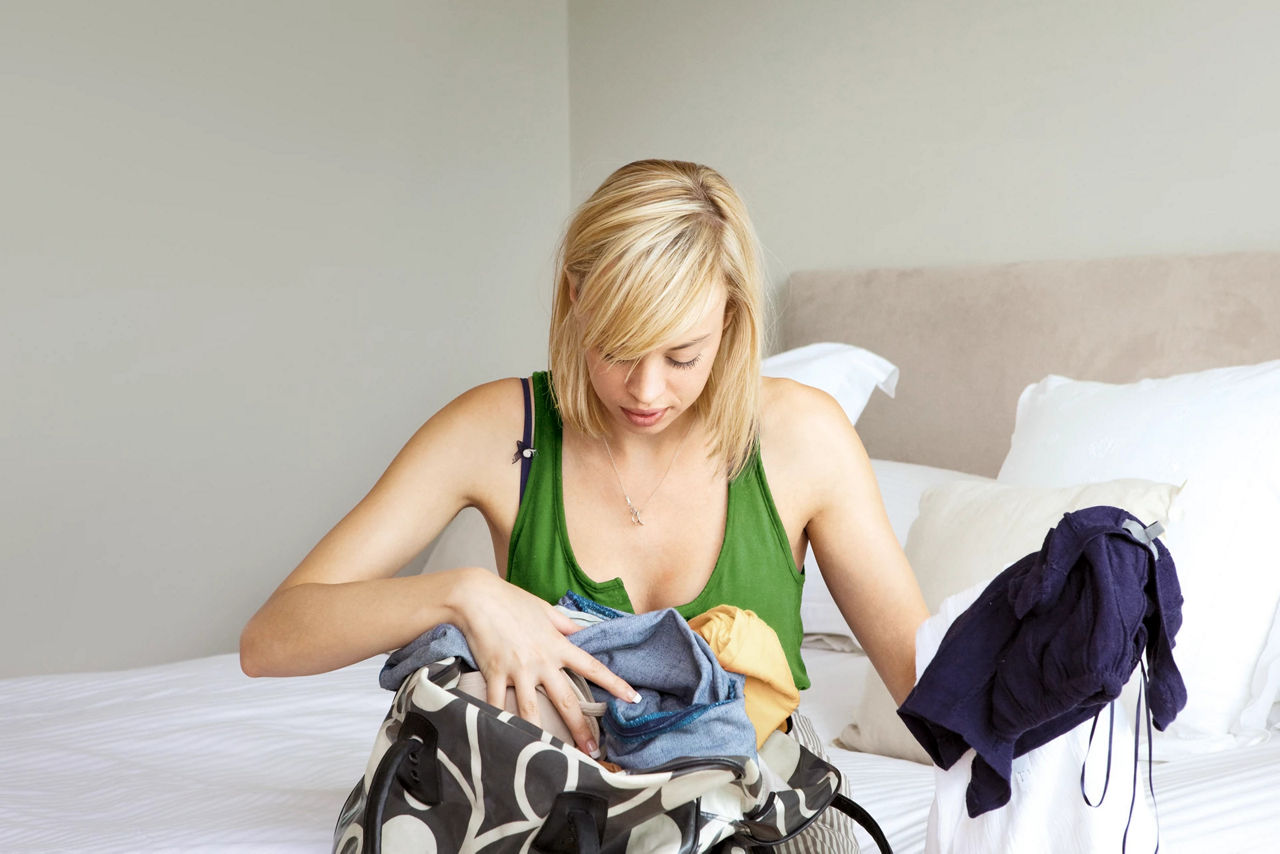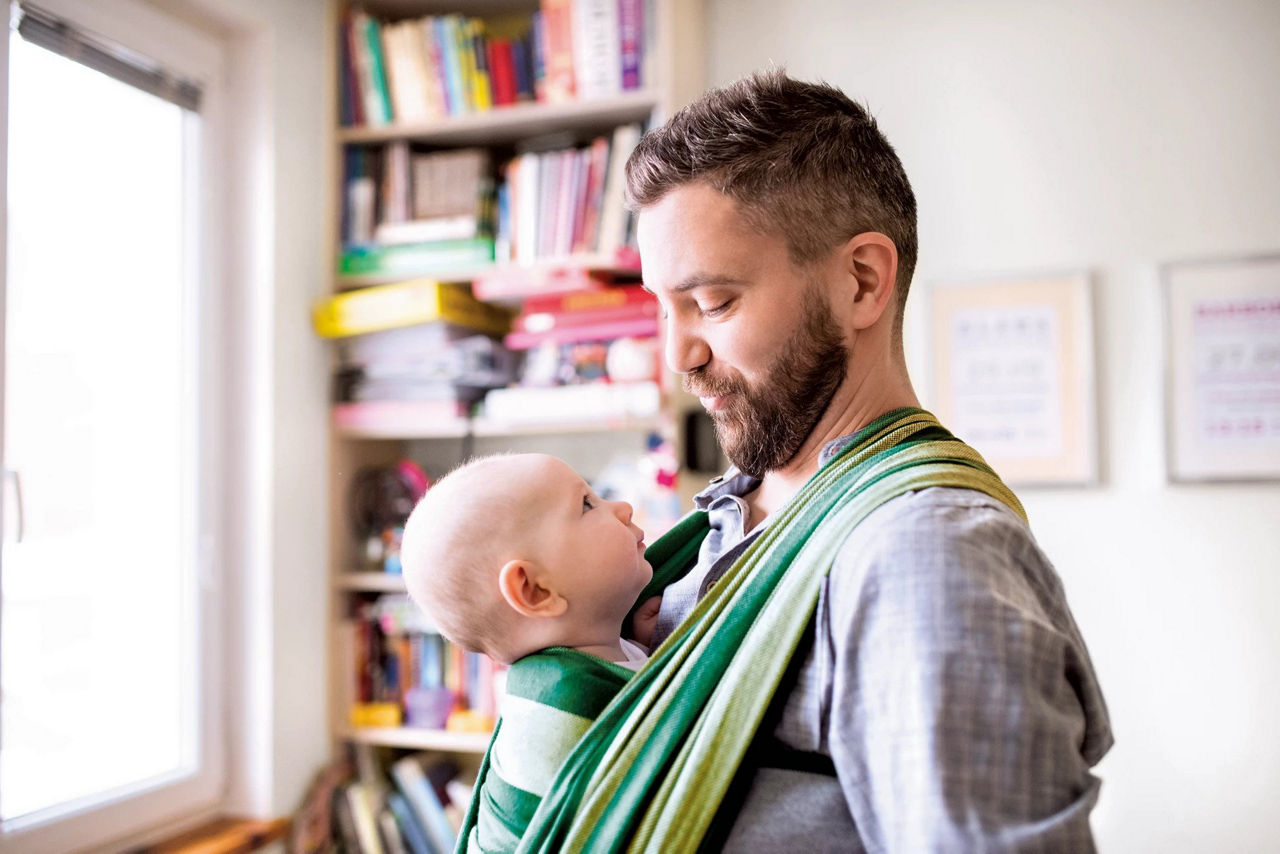Free weaning plan - Register here
Bottle-feeding in hospital
How you decide to feed your little one after birth is entirely up to you. Whether you choose to exclusively breastfeed, introduce combination feeding or bottle feeding with baby formula milk, what matters is that you find a feeding method that works for you and your baby.
Here you’ll find lots of helpful information about bottle feeding in hospital, whether you’ve chosen to formula feed or use expressed breast milk. We’ll also look at some of the things you might need to pack in your hospital bag to help you feel as prepared as you can for your feeding journey.
Bottle-feeding from birth in hospital
Whether you’re already settled on bottle feeding your baby from birth, or your baby requires some additional care, there are some things you’ll need to be aware of in order to prepare for your feeding journey.
There’s no responsibility for the NHS to provide infant formula or bottle feeding equipment that you might need if you’re bottle feeding in hospital1. They’re also unlikely to have any of the bottle-feeding equipment and accessories that you might need if you’re bottle feeding in hospital. For example, feeding bottles and a steriliser.
To be sure, always check with your midwife or the hospital where you plan to give birth about what they have available, as it’s very important that you have everything you need to prepare your baby’s bottle safely.
What to take to hospital if bottle-feeding
If you’re bottle feeding in hospital, what you’ll need to bring with you depends on whether you’re bottle feeding with infant formula milk or expressed breast milk.
Bottle-feeding in hospital with expressed breast milk
Whilst some hospitals and maternity units will have breast pumps that you can use, others won’t. As such, if you intend to express your milk, and have a breast pump at home, it’s probably a good idea to bring it with you. That way you can express as and when you need to, which will help to establish your milk supply2. You’ll also need to bring some baby feeding bottles too for your expressed breast milk.
Bottle-feeding in hospital with infant formula
If you’ve chosen to formula feed, check with your hospital whether you need to bring your own baby milk and feeding equipment in your hospital bag. When it comes to infant formula. first infant milk is suitable for your baby for the first 12 months of life.
There are several different formats available when it comes to infant formula milk, but bear in mind that you’re unlikely to have any room where you can safely store any opened ready to feed formula milk or prepare powdered formulations1. Many parents choose baby formula that’s available in starter packs. These contain 6 disposable bottles of ready-to-feed first infant milk for newborn that you can use straight from the pack. They also come with 6 pre-sterlisied teats that you attach to the bottle so that you can feed straight away3.
There’s no way of knowing how long you’ll need to stay in hospital after the birth of your little one. As such, it's probably best to bring enough baby formula milk with you, if you're bottle-feeding in hospital, is advisable, and perhaps put your birth partner (if you've chosen to have one) on notice that they may need to bring more.
Always make sure that you follow the preparation instructions on the packaging to ensure that you’re preparing your baby’s feed safely. In addition, you can always ask your healthcare professional for the help and support that you need. Read more about how to safely prepare your baby’s formula milk here.
It’s important to ensure that your baby’s feeding equipment (including your breast pump) is properly sterilised and safe to use.
Learning to prepare a feed
Whilst some NHS Trust hospitals will help you to learn how to make up your baby’s bottle, many won’t have the facilities to do so. This is just another reason why starter packs of newborn disposable bottles are popular with new parents who are bottle feeding in hospital.
However, this doesn’t mean that you can’t seek advice from a healthcare professional during your stay. If you’ve got any questions at all about how to prepare your baby’s bottle, always ask for the help and support that you need. Read more about how to safely prepare your baby’s formula milk here.
It’s important to ensure that your baby’s feeding equipment (including your breast pump) is properly sterilised and safe to use. Again, you may not have access to facilities that enable you to do then of bottle feeding in hospital, and if that's the case you’ll need to ensure that there’s someone who can do this for you at home.
Using the right teat
There are a variety of different teats to choose from if you decide to bottle feed your baby, and it’s very important that you use the right one for your newborn. Bottle teats all have different flow rates; fast, medium and slow.
A teat with a slower flow is likely to be the most appropriate one for your newborn baby, as it will help them to control the flow of milk more easily and prevent too much milk going into their mouth as they feed4.
As your baby grows, you may find that you need to use a teat with a different flow in accordance with their age. However, just follow your baby’s lead and their feeding cues to make sure they’re getting the milk that they need.
How often should you bottle-feed in hospital?
All babies are different, and their appetites can vary from day to day. As a general guide, your baby will only require very small amounts of milk in those first precious days after birth. If you choose to formula feed, on an average day your baby will only need around 150 - 200 ml of baby formula milk per kg of their body weight up until they reach six months of age5.
However you choose to feed your baby, healthcare professionals advise that you feed your baby as and when they want to be fed, rather than following a strict feeding schedule or routine. This is known as feeding your baby on demand and involves becoming familiar with and following your baby’s feeding cues. Your baby is likely to feed little and often at first, and rest assured that they’ll waste no time at all in letting you know that they’re hungry. With a little time, you’ll get to know your baby’s feeding cues and settle into a routine that works for you both.
You can learn more about your baby’s feeding cues and how often they might feed here.

- NHS. Getting Started (Bottle Feeding) [online 2024]. Available at https://www.uhcw.nhs.uk/maternity/getting-started-bottle-feeding/. [Accessed February 2024]
- NHS Great Ormond Street Hospital for Children. Breastfeeding and expressing milk for your baby at GOSH [online 2018]. Available at https://www.gosh.nhs.uk/conditions-and-treatments/procedures-and-treatments/breastfeeding-and-expressing-milk-your-baby-gosh/. [Accessed February 2024]
- NHS. What should I pack for coming into hospital? [online 2018]. Available at https://mft.nhs.uk/app/uploads/sites/4/2018/04/What-should-I-pack-for-coming-into-hospital-February-2018.pdf. [Accessed February 2024]
- NHS Start for Life. Things you need for formula feeding [online]. Availabe at https://www.nhs.uk/start-for-life/baby/feeding-your-baby/bottle-feeding/how-to-make-up-a-feed/things-you-need-for-formula-feeding/#:~:text=Teats%20have%20different%20flow%20rates,to%20a%20faster%2Dflowing%20teat. [Accessed February 2024]
- NHS 111 Wales. Pregnancy Guide [online 2021]. Available at https://111.wales.nhs.uk/livewell/pregnancy/bottleformulacommonquest/#:~:text=Newborn%20babies%20need%20quite%20small,vary%20from%20baby%20to%20baby. [Accessed March 2024]

Join our baby club
Ready to stop worrying about what other people think and do what feels right to you? We’ll give you the support you need to follow your instincts and enjoy parenthood to the max:
Helpful emails
Non-judgemental support
Free weaning plan
Tips from real parents
More from baby
Baby topics
Need free advice with a smile? Get in touch with our dedicated Care team.
Ask us a question (8am - 8pm Monday to Friday, 10am - 4pm Weekends)
Messenger
Contact us on Facebook (10am - 10pm, 7 days a week)
Call us
Call us on 0800 977 8880 (8am - 8pm Monday to Friday)
FAQs
Get answers to your most frequently asked questions


?ts=1701080527480&dpr=off)
